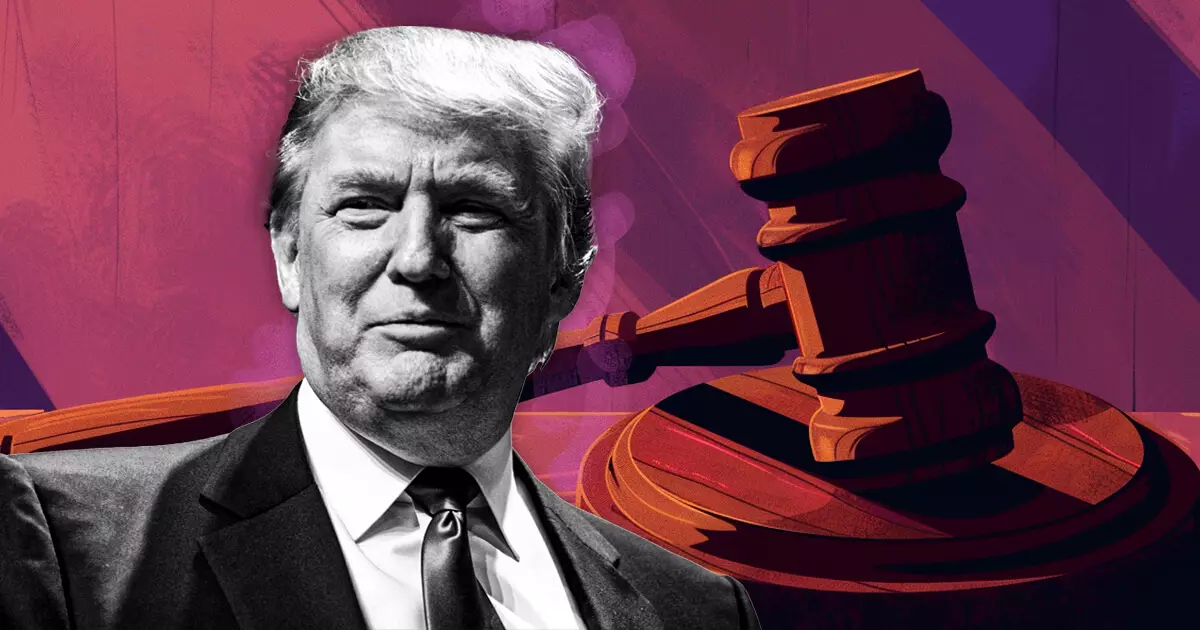The landscape of cryptocurrency and decentralized finance (DeFi) is fraught with uncertainty, particularly for new ventures attempting to capture market attention. Recently, former President Donald Trump announced his involvement with a DeFi project named World Liberty Financial. However, this initiative does not enjoy a free pass from the regulatory challenges plaguing the crypto space in the United States. As highlighted by SEC Commissioner Mark Uyeda in a forthcoming interview, the project must adhere to stringent disclosure requirements set forth by the SEC, reinforcing a wider dialogue about regulatory clarity and its implications for innovation.
Uyeda articulated a crucial aspect of SEC regulations: the organization primarily functions as a “disclosure regulator,” a statement that underscores its mandate to ensure transparency rather than to assess the inherent value or risks of any specific cryptocurrency initiative. This position could present significant hurdles for Trump’s project, as it will face the same scrutiny and compliance requirements as other crypto ventures. The challenge lies not only in adherence to legal standards but also in ensuring that potential investors receive accurate and comprehensive information about the project’s operations, goals, and risks.
As the regulatory framework stands today, World Liberty Financial must grapple with the intricacies of navigating disclosure laws, which many in the industry deem complex and opaque. Uyeda’s advice to secure skilled legal counsel reflects the difficult terrain every new startup must traverse within the cryptocurrency ecosystem. Without a clear understanding of these regulations, ventures can easily fall victim to the pitfalls of non-compliance, resulting in financial penalties or even project shutdowns.
Additionally, Trump’s association with the project introduces a layer of political complexity. The partisan atmosphere surrounding crypto regulation may lead to increased scrutiny from opposing political factions, further complicating the project’s journey. With regulatory bodies potentially under pressure to enact stricter rules against initiatives linked to politically polarizing figures, the regulatory environment remains tense. It raises the question of whether personal biases could affect the actions of regulators as they evaluate World Liberty Financial.
Uyeda’s insights echo sentiments among various industry stakeholders who fear that political agendas may interfere with a coherent regulatory framework. This poses a risk not only to Trump’s project but to the broader cryptocurrency landscape as well. The existing divisions in the political climate could stymie innovative endeavors, as projects with perceived partisan connections may be subjected to more rigorous examinations.
The frustrations within the crypto community are palpable. Commissioners like Hester Peirce have voiced concerns over the “toxic” regulatory environment that stifles growth. Without a unified approach to crypto regulations, many argue that innovation in the U.S. is under threat, with the potential for companies to relocate their operations to countries with more lenient regulations. This exodus would not only hinder growth within the U.S. but may also diminish its status as a global leader in financial technology.
There is a growing call among lawmakers for clearer regulatory guidelines and a more streamlined process. The proposition for a joint advisory body could be a significant step toward creating a transparent regulatory framework that encourages innovation while safeguarding investors. By establishing clear guidelines, the SEC would empower projects like World Liberty Financial to flourish within established legal boundaries, mitigating the pervasive uncertainty that haunts the industry.
Trump’s World Liberty Financial faces daunting obstacles as it seeks to establish itself in the rapidly evolving crypto market. The complexities of U.S. regulations loom large, necessitating a focus on disclosure and compliance for its success. While the former president aims to position the project as a leader in the global crypto landscape, the outcome may well hinge on the SEC’s evolving guidance and the political climate surrounding cryptocurrency regulation.
With the need for clearer laws pressing more than ever, the success of World Liberty Financial—and indeed, the future of crypto innovation in the U.S.—may depend on the ability and willingness of regulatory bodies to provide the clarity and support necessary for meaningful advancement in this dynamic sector. As the situation develops, it will be crucial to keep watch on how regulatory frameworks evolve in response to both political shifts and the insistent calls for innovation from the industry.
















Leave a Reply